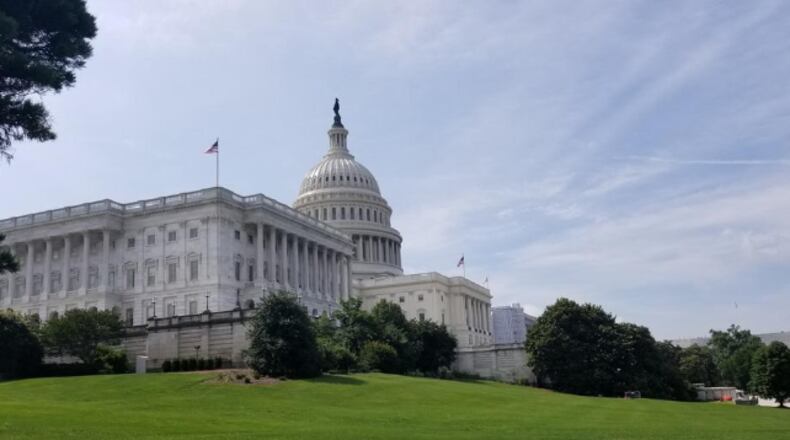But Reiner was not offering any public suggestions.
"I'm not here to tell the Congress how to fund it," the highway chief told the Senate Environment and Public Works Committee.
Panel Chairman Sen. John Barrasso (R-WY) has vowed to push ahead with a five year transportation bill in coming months, with a committee vote possible before Senators leave town on their summer break.
Barrasso eyes Aug. 1 markup for infrastructure reauthorization bill https://t.co/uMYytigjuQ
— Agri-Pulse Communications (@agripulse) July 10, 2019
Both Democrats and President Trump have publicly expressed their support for an over $1 trillion infrastructure plan - but neither side has put down on paper how it would be funded, which is always the third rail of the highway bill debate.
"The gas tax is the easy short term answer," said Max Kuney, representing road building companies through the Associated General Contractors of America, as he noted the federal gas tax of 18.5 cents a gallon has not been increased since 1993.
"The Highway Trust Fund needs to be funded by the users of the system. And the best way to do that is through a user fee." - Max Kuney, President at Max J. Kuney Co.
— CTAA (@OfficialCTAA) July 10, 2019
But at Wednesday's hearing, Kuney and others said the growing number of hybrid and electric vehicles on America's roads shows the gas tax is not a long term answer to funding road and bridge construction needs.
"For example, consideration should be given to imposing an annual registration fee for electric and hybrid vehicles," Kuney added.
That's already being done in some states, as a way to insure that those vehicles pay into the highway system, sometimes paired with an increase in state gasoline taxes.
"In 2015 our legislature passed a five-cent increase to the fuel tax and indexed the rate to inflation," said Carlos Braceras, the head of the Utah Department of Transportation, who told Senators how registration fees had been increased by 30 percent for electric and hybrid vehicles, to insure that they pay more into the funds for road construction.
‘The lack of stable, predictable funding from the Highway Trust Fund makes it nearly impossible for state DOTs to plan for... projects that need a reliable flow of funding. These projects are what connect people, enhance quality of life, & stimulate economic growth.’ @CarlosUDOT pic.twitter.com/iDG7KIgh9x
— AASHTO (@aashtospeaks) July 10, 2019
Utah is one of a number of states - Red and Blue - which have moved to increase their own gasoline taxes in the past few years, knowing that a funding boost from Uncle Sam is unlikely.
As lawmakers work to pass a new transportation bill, one Democratic Senator said it might also be time to consider giving states more leeway to levy tolls as well, with the expanding use of electronic toll collection.
"People go through, charge their Master Cards or whatever, and they're on their way. No muss, no fuss," said Sen. Tom Carper (D-DE), who described how I-95 in his state went from being a parking lot as traffic backed up to pay tolls, to a highway where tolls are paid automatically as cars speed by at 65 mph.
"I think this has really opened up a new opportunity to make tolling a better option for states than we have in the past," said Carper.
Carper also pressed the idea of the futuristic 'Vehicle Miles Traveled,' which would use technology to track how much people drive - and they would pay fees based on their road use.
"There are no silver bullets, a lot of silver BB's," Carper added on the question of transportation funding.
About the Author
